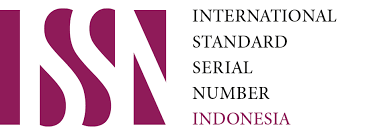Masa Depan Hak Cipta: Tinjauan Keabsahan Hasil Karya Kecerdasan Artifisial di Indonesia
DOI:
https://doi.org/10.53866/jimi.v2i1.51Keywords:
Hak Cipta, Kecerdasan Artifisial, Hasil Karya.Abstract
The increasingly dynamic development of technology has always had an impact in various sectors including on the copyright intellectual property regime that continues to experience digital disruption. One such disruption comes from the presence of artificial intelligence that is currently able to make works autonomously without human intervention. This actually led to a paradigm shift related to the work that was originally attached in the direct relationship between the Creator and his work as philosophical intellectual property protection began to change due to artificial intelligence. Therefore, there are legal issues related to the validity of artificial intelligence works and the future of copyright law in Indonesia because currently the existing regulations have not clearly accommodated artificial intelligence. Research methods using normative juridical approaches with descriptive analysis methods and literature studies of primary, secondary, and tertier legal materials, then conducted legal comparisons with the European Union. The results of the study will show the status of artificial intelligence works based on the Copyright Law and legal reconstruction as the results analysis of ius constituendum of copyright in Indonesia
References
Bibliografi
Budi Agus Riswandi, Dio Fajar Sakti, Putri Yan Dwi Akasih, Putri Detri Oktavesia, Himahinayah, Rahajeng Dwi Purnamasari, dan Windura Pranahita, Pembatasan dan Pengecualian Hak Cipta di Era Digital, 2016, PT. Citra Aditya Bakti, Bandung.
Dalvinder Singh, Dalvinder Singh, “A Critical Conceptual Analysis of Definitions of Artificial Intelligence as Applicable to Computer Engineering”, Journal of Computer Engineering, Vol. 16, Issue 2, 2014.
David Mhlanga, “Artificial Intelligence in the Industry 4.0, and Its Impact on Poverty, Innovation, Infrastructure Development, and the Sustainable Development Goals: Lessons from Emerging Economies?”, MDPI Sustainability, 2021.
Elgar H. Gaon, 2021, The Future of Copyright in the Age of Artificial Intelligence, Edward Elgar Publishing, Chentenham UK.
I Made Pasek Diantha, 2016, Metodologi Penelitian Hukum Normatif dalam Justifikasi Teori Hukum, Prenada Media, Jakarta.
Joel. R. Reidenberg, “Lex Informatica: The Formulation of Information Policy Rules through Technology”, Texas Law Review, Vol. 76, No.3, 1998.
Khlin Hristov, “Artificial Intelligence and Copyright Dilemma”, The Journal of the Franklin Pierce Center for Intellectual Property, Vol. 57, No.3, 2017.
Kristophorus Hadiono dan Rina Candra Noor Santi, “Menyongsong Transformasi Digital”, Proceeding SENDIU, 2020.
Jyh-An Lee, Reto Hilty, Kung-Chung Liu, 2021, Artificial Intelligence and Intellectual Property, Oxford University Press, Oxford.
Martin Spano, 2019, The Artificial Intelligence in a Nutshell A brief introduction to Artificial Intelligence, Machine Learning, Neural Networks, Deep Learning, and Robots, Slovakia, Martin Spano.
Maskun, 2014, Kejahatan Siber (Cyber Crime) Suatu Pengantar, Prenada Media, Jakarta.
P. Bernt Hugenholtz dan Joa ̃o Pedro Quintais, “Copyright and Artificial Creation: Does EU Copyright Law Protect AI-Assisted Output?”, International Review of Intellectual Property and Competition Law, 52, 2021.
Prasetyo Hadi Purwandoko dan M. Najib Imanullah, “Application of Natural Law Theory (Natural Right) To Protect The Intellectual Property Rights”, Jurnal Hukum Yurstisia, Vol. 6, No.1, 2017.
Rae Earnshaw, 2017, Art, Design, and Technology: Collaboration and Implementation, Springer International Publishing, New York.
Tambiana Madiega, Artificial Intelligence Act, European Parliament: European Parliamentary Research Service, 2021.
Tanya Frances Aplin dan Jenifer Davis, 2017, Intellectual Property Law: Text, Cases, and Materials, Oxford University Press, Oxford.
Uthayan Elangovan, 2022, Industry 5.0 The Future of The Industrial Economy, CRC Press, New York.
Weiwen Chen, Mohammad Shidujaman, dan Xuelin Tang, “AiArt: Towards Artificial Intelligence Art”, The 12th International Conference on Advances in Multimedia, 2020.
William Raynor, 2020, International Dictionary of Artificial Intelligence, CRC Press, Florida USA.
WIPO, 2016, Understanding Copyright and Related Rights, World Intellectual Property Organization, Switzerland.
Zainuddin Ali, 2009, Metode Penelitian Hukum, Sinar Grafika, Jakarta.
Konvensi Internasional dan Peraturan Perundang-Undangan
Konvensi Berne Tahun 1886 tentang Perlindungan Karya Seni dan Sastra (The Protection of Literary and Artistic Works, 1886, Done at Bern Swiss. Signed at 9 September 1886, Effective at 5 December 1887. World Intellectual Property Organization).
Perjanjian TRIPs Tahun 1994 tentang Aspek-Aspek Dagang yang Terkait dengan Hak atas Kekayaan Intelektual (Agreement on Trade-Related Aspects of Intellectual Property Rights, 1994, Done at Marrakesh Moroco, Signed 15 April 1994 Effective at 1 January 1995. World Intellectual Property Organization).
Draft Regulation of The European Parliament and of The Council Laying Down Harmonised Rules on Artificial Intelligence (Artificial Intelligence Act) And Amending Certain Union Legislative Acts.
European Copyright Code.
Undang-Undang Dasar Negara Republik Indonesia Tahun 1945.
Undang-Undang Nomor 28 Tahun 2014 tentang Hak Cipta.
Internet/Website
WIPO, Artificial Intelligence and Intellectual Property, 7 Januari 2022, URL: https://www.wipo.int/about-ip/en/frontier_technologies/ai_and_ip.html
Squire Patton Boggs, The Proposed New EU Regulatory Regime for Artificial Intelligence (AI), 9 Januari 2022, URL: https://www.squirepattonboggs.com/-/media/files/insights/publications/2021/09/the-proposed-new-eu-regulatory-regime-for-artificial-intelligence-ai/theproposedneweuregulatoryregimeforaiv5.pdf
Downloads
Published
Issue
Section
License
Copyright (c) 2022 Rizki Fauzi, Tasya Safiranita Ramli, Rika Ratna Permata

This work is licensed under a Creative Commons Attribution-ShareAlike 4.0 International License.














